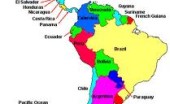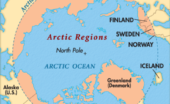Johannah Bernstein post: "eternally proud of my father’s extraordinary aeronautical engineering. legacy. here is a photo of the Canadair Water…
Wednesday Night #1868 – a night of lists
Written by Diana Thebaud Nicholson // December 27, 2017 // Wednesday Nights // Comments Off on Wednesday Night #1868 – a night of lists
Having wished our friends and family, far and near, a sparkling, Merry Christmas with loved ones, much music, laughter and love, we must now examine all those year-end LISTS, because it is the season.
But before we go there, a salute to NORAD for its Santa-tracker operation (this link is to NPR; The National on CBC carried the same story).
Why the fascination with lists? We like this explanation from Quartz:
“We like lists,” Italian philosopher and novelist Umberto Eco posited, “because we don’t want to die.”
No era in human history has capitalized on that fact like this one. Of course, lists have been a defining medium for a very long time—there are precisely 10 commandments, four noble truths, seven types of drunkenness, and one partridge in a pear tree.
But the internet is the place where the list truly comes alive, almost in a cockroach-after-a-nuclear-blast way, and this is especially true in December. What’s the appeal of the ubiquitous year-end list? Probably, in part, it’s that we’re in a reflective mood. We fear we’ve missed something great, or that we’ll forget something important. Partially it’s because everyone gets a say online, and lists are a catchy form: concise, competitive, infinite in possibility.
But perhaps most significantly, a list is not infinite. It ends. Out of the stream of unceasing culture and news, a list encapsulates, it closes a loop. “We were here,” a list says, in its own small way, “at least for one more year.”
There is The Top 10 Trump controversies of 2017 or The Atlantic’s writers and editors recommendations of the year’s best cultural creations; or Project Syndicate Commentators’ Best Reads in 2017 and so many more, but it’s no secret that the New York Times is one of our favorite publications, so here are suggestions from two of their op-ed writers.
The first is from Dave Leonhardt, author of the indispensable Opinion Today newsletter who notes that “I rely heavily on other publications — competitors of The New York Times — in putting together this newsletter. So to kick off this week’s year-in-review series for the newsletter, I’m turning it over to top editors from those publications.”
He “asked each of them to recommend one piece they published in 2017 — not necessarily their favorite (few editors will admit to having a favorite) but one worth rereading at year’s end. The exercise was a whole lot of fun and led me to read some fabulous pieces I hadn’t yet read.”
The second is David Brooks’ The 2017 Sidney Awards, Part I (Part II will follow on Thursday, 28 December). The Sidney Awards’ mission is celebrating the year’s best long-form journalism
You will certainly find food for thought in many, if not all of their selections.
For the more STEM-inclined, there are The Most-read WIRED Gear Stories of 2017 and The most uplifting science stories of 2017
The Sierra Club identifies the Top 10 Environmental Stories of 2017 The bad and the worse … plus a bit of good.
And a recently released report by Germany’s Helmholtz Center for Environmental Research lists the 10 rivers that carry most of Ocean Plastic Pollution
[UPDATE] The Washington Post lists 10 memorable White House press briefing moments of 2017 (Sean Spicer; Anthony Scaramucci aka The Mooch, Sarah Huckabee Sanders et al.)
There are so many more; do send us your favorites and we will revisit the topic over the coming weeks.
Meantime, the two WN Davids have been hard at work publishing the David vs. David columns addressing the problems of international trade and, particularly, China’s role in global exchanges. Trade and the China Challenge (Jones) and Trade, China, and Consequences (Kilgour)
The latter raises the troubled trade relatons between Australia and China “The China-Australia FTA came into effect in 2015. By last June, Beijing’s meddling in Australia’s politics was so pronounced that an investigative report, “Power and Influence,” was published on the threat to Australian sovereignty. Prime Minister Malcolm Turnbull moved a week or so ago to ban foreign political donations, citing “disturbing reports about Chinese influence” on Australian politics.” This theme was also discussed by Chris Patten in Trumpism Down Under. A friend in Australia confirmed the pervasive and pernicious influence of China recounting that one of their employees “(Chinese born but raised and educated in Australia) was literally ordered on to one of hundreds of buses the Chinese government had organised to go to Canberra to protest Falun Gong for a day. He had no choice. As he told me, he still had family in China and they would be arrested if he did not participate.”
Tony Deutsch adds to the discussion with Containing China’s aggression – is it even possible?
A lack of coordination in resisting Beijing’s relentless pursuit of territory has worsened the problem, but countries have been split on how to respond
You may also be interested in Why Saad Hariri Had That Strange Sojourn in Saudi Arabia With Joumane’s return from Beirut this week, we will have the opportunity to learn more.
Finally, next week will be the time to start looking at all the forecasts, but for an avant-goût, Reuters offers What to watch in 2018
There’s a warm welcome for those who brave the winter chill – with or without your own list – and for those who are away, we look forward to seeing you soon in 2018.
May the New Year bring health, peace, joyful reunions with far-flung friends and a much-improved version of 2017!



